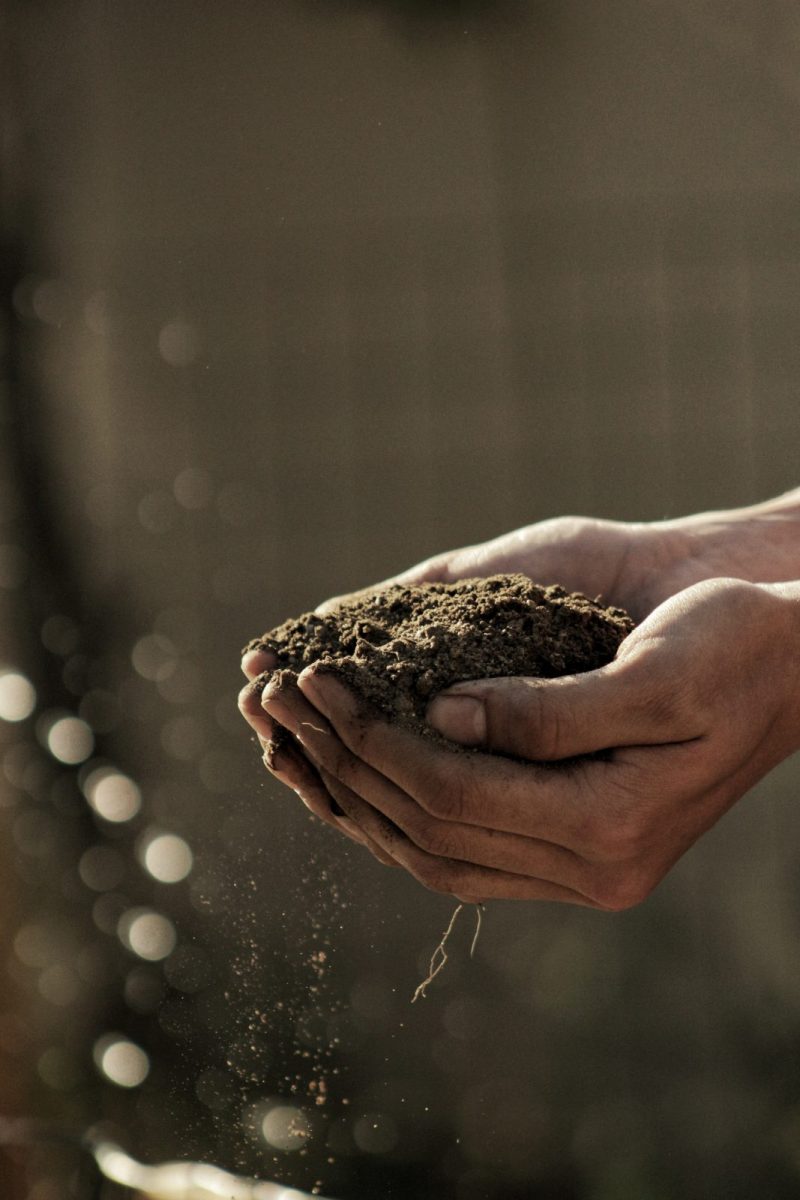With agriculture being largely blamed as one of biggest contributors to climate change there needs to be a Wales wide approach to revise the industry and our relationship with our food supply chain. The environmental effects of modern consumer agriculture on wildlife and the connection between livestock feed and the deforestation of America’s rainforest is alarming. However, one possible answer is using the regenerative agriculture system as part of our farming principles to create Wales as a world leading nation in sustainable agriculture.
Agroecological or regenerative agriculture ensures farmers take control on how they want to farm their land sustainably. The theory behind regenerative farming believes that agriculture has a role in rehabilitating and enhancing the entire ecosystem by working closely with soil and water management.[1] These methods can be followed by principles such as:
Minimising Soil disturbance – Fertilizers and continuous ploughing of land has weakened the fertility of the land. By minimising soil disturbance, the ecosystem has a chance to thrive and create healthier crops.
Keeping Soil covered – Keeping the soil covered for most of the year will ensure protection from wind and water erosion and stop weed seeds from germinating.
Plant or crop diversity – Increasing the range of crops and animals in the system decreases pest and disease pressure while supporting biodiversity and improving soil health. In Wales work is already being done such as with the Gaia foundation and farmer Gerald Miles who is striving to use more indigenous seeds and grains that are sustainable for our land in order to boost grain diversity in a time of crisis.
Integrating livestock – Using livestock on arable land not only provides organic manure and encourages new plant growth that eventually pumps more carbon into soil. Farmers need to step away from intensively reared grain-fed livestock that consumes one third of all cereal production if we want meat as part of a sustainable food chain in Wales.[2] 80% of Welsh farmland is un-arable therefore the use of grass-fed cattle and lamb is essential for the industry in Wales to create sustainable produce.[3] However creating small areas of horticulture land is vital and here in Wales we must increase the number of farms that grow fruit and vegetable for the local population. Our Food, located in Monmouthshire is leading the way in Wales promoting and supporting farmers who use these methods that increase biodiversity, improve soils and water supplies, capture carbon and keep pests and diseases to a minimum.
The Food, Farming & Countryside Commission believes we must adopt these methods and other agroecological principals such as reducing the size of holdings which, would be beneficial for Welsh farmers as they tend to be smaller than the rest of the UK.[4] The Welsh Government also conclude that their agricultural policies and initiatives need be aimed at restoring biodiversity in their latest report Sustainable Farming Scheme: restoring biodiversity. But the Food Policy Alliance insists the Welsh Government needs to set up a Welsh Food Commission that is suitable for the future generations act in order tackle climate change within agriculture and applying agroecological methods to the industry.
Regenerative methods can create long-term impact for rural communities by creating a smaller food supply chain and less food miles, the method also give more control to the producer that in the end creates a more profitable business. In order for Welsh agriculture to tackle the threat of climate change promoting regenerative agriculture might be the forward for the industry to thrive in rural Wales.
[1] https://www.climaterealityproject.org/blog/what-regenerative-agriculture
[2] https://www.independent.co.uk/life-style/food-and-drink/british-farmers-producing-top-quality-food-taking-intensive-farming-veganism-a8851606.html
[3] https://eatwelshlambandwelshbeef.com/what-is-pgi/environment/
[4] https://ffcc.co.uk/assets/downloads/FFCC_Farming-for-Change_January21-FINAL.pdf
[4] https://senedd.wales/research%20documents/16-053-farming-sector-in-wales/16-053-web-english2.pdf p3


